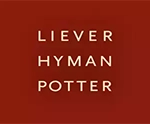American Association for Justice
News Brief
Wyeth, Philip Morris rulings said to mark Supreme Court’s shift away from business bias. Bloomberg News (4/1, Stohr) reports, “The high court’s order yesterday dismissing Philip Morris USA Inc.’s appeal of a $79.5 million smoker award left companies winless in the three biggest business cases resolved so far in the court’s 2009-10 term. The justices, who declined to rule on the Philip Morris case, said in earlier decisions that consumers can sue over ‘light’ cigarettes and prescription drugs.” While “the recent decisions against companies don’t mark a new trend or an emerging sympathy toward plaintiffs’ lawyers, according to attorneys who appear before the court,” these recent “rulings nonetheless underscore how the court’s pro-business tendencies don’t always translate into litigation victories.” Robin Conrad, executive vice president of the Chamber of Commerce’s litigation unit, said, “It does belie the stories that we’ve read that this court has a bias toward business.”
The Washington Post (4/1, A6, Barnes) reports, “The Supreme Court dealt a blow to Philip Morris yesterday, ending the cigarette maker’s challenge of an award now worth more than $150 million to the widow of a longtime smoker.” The Supreme Court’s one-sentence decision to not intervene in the case “months after the justices heard oral arguments in the dispute, was a surprising and anticlimactic ending to a case that has bounced back and forth through the judicial system for nearly a decade.” They said, “in the unsigned opinion that they should not have accepted the case for a third time, and in the language of the court, dismissed it as ‘improvidently granted.'”
The New York Times (4/1, B2, Liptak) reports, “‘The Oregon Supreme Court applied the wrong Constitutional standard,’ Justice Stephen G. Breyer wrote for the majority in 2007, and it should now ‘apply the standard we have set forth.'” However, “the Oregon Supreme Court stuck to its original ruling, saying for the first time that it was supported by a principle of state law, one beyond the power of the United States Supreme Court to re-examine.”
The AP (4/1, Sherman) reports, “Murray Garnick, Altria’s associate general counsel, expressed disappointment with the ruling, but said the decision does not undo earlier high court rulings reining in punitive damages awards. ‘While we had hoped for a different outcome, the Supreme Court has decided not to review a narrow procedural ruling by the state court,’ Garnick said.'”
The Legal Times (4/1, Mauro) reports, “When such a dismissal comes soon after oral argument, it often means the justices have discovered a defect in the case that makes it an inappropriate vehicle to decide the issue.” However, “when, as here, the dismissal comes nearly four months after argument, it could mean that after several tries, no majority of the justices coalesced around a single position.”
Bloomberg News (3/31, Stohr) reported the Supreme Court declined “to rule in a case that business groups had hoped would lead to tougher restrictions on punitive damages.” The AP (4/1, Hudetz), Dow Jones Newswires (4/1, Anderson), and CNBC (3/31, Cohn) also cover the story.

